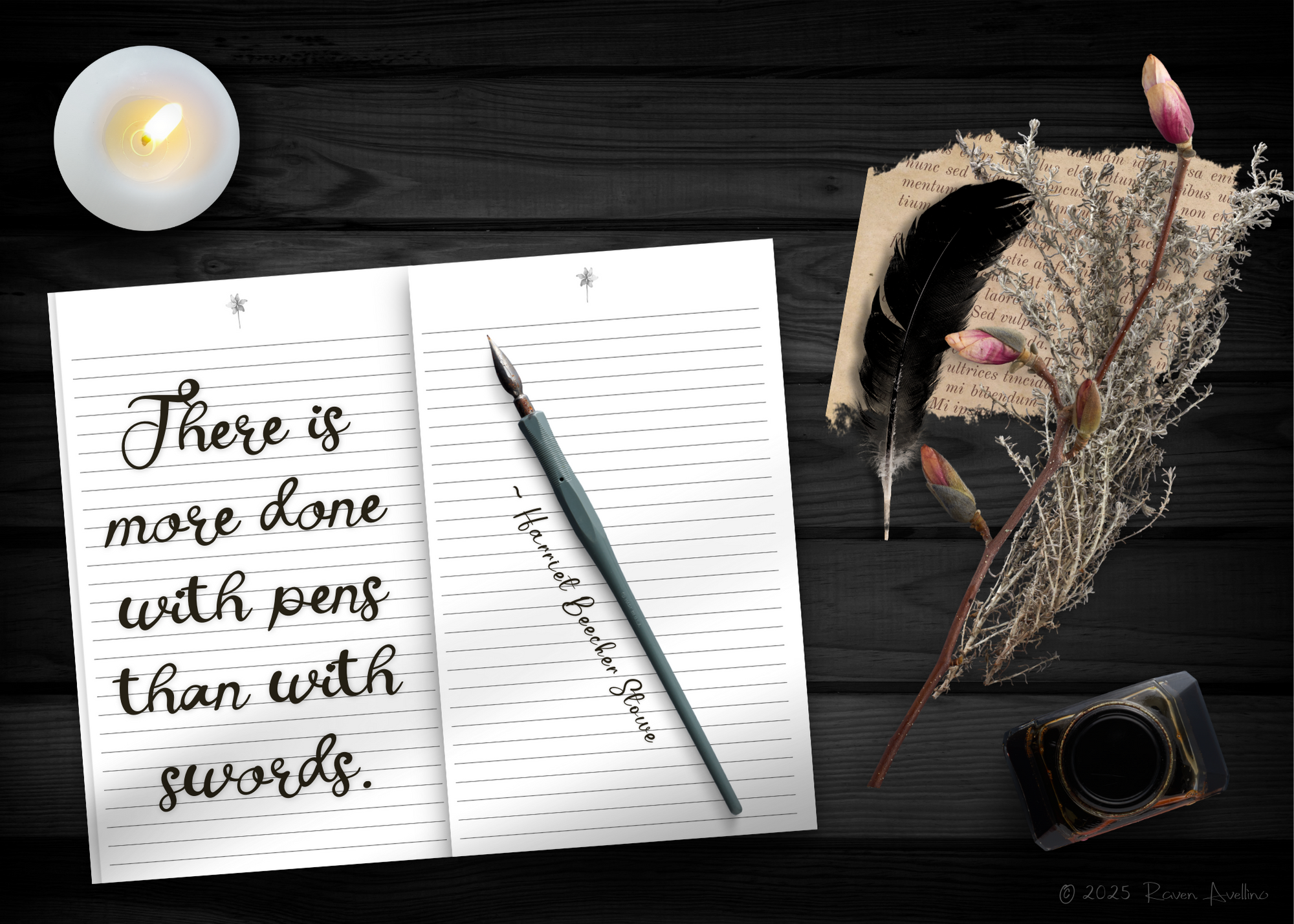I Don’t Write Just to Escape—and That’s Okay
These aren’t just love stories. They’re how I speak when silence feels like complicity. If it looks like escape from the outside, that’s fine. From the inside, it’s resistance—and survival.

My Romance Novel Isn’t Your Getaway Car
Apparently, romance novels are supposed to be getaway cars from real life. Except my getaway car? Mine hulks in the garage with dust on the dash, a slow leak in the tire, and a trunk full of emotional baggage.
There’s this unspoken expectation that writers—especially those of us who build entire fictional worlds—are doing it to flee something. That we crack open our laptops like trapdoors, swan-dive into our stories, and come up gasping in a place that smells like lavender and free will. And sure, escape is part of it. Sometimes I do write to get out of my own head. Sometimes I write because the dishes won’t do themselves, and I’d rather invent a post-apocalyptic love triangle than confront whatever’s growing in my fridge. My novels have saved me more than once from the numbing sameness of days that blur and stretch and feel too heavy to carry.
What Looks Like Escapism Is Sometimes a Reckoning
Escape is a perk, not the point. When I write, I build other worlds, but they’re not simply fictional settings, they’re dissection tables. They’re worlds where love might survive the collapse of civilization, or where power structures get turned inside out by stubborn, flawed women with sharp tongues and sharper minds. That looks like escapism from the outside. But to me, it's more like slicing the world open and peeking inside.
Because here’s the thing: I don’t just write to get away from something. I write to face it. And I’m a little tired of the idea that fiction should always be “a break” from real life. That stories exist to comfort, to soothe, to pat us gently on the head and distract us while everything burns. Sometimes writing is a comfort. But other times, it’s a confrontation. A calling-out. A raised eyebrow and a middle finger and a mirror. That part never makes it onto the motivational posters.
Romance Isn’t Just Fluff (and Never Was)
Romance has been branded as the genre people turn to when they want to check out. And, let’s be honest, romance is flat-out dismissed by many, and mocked by others (while they secretly devour it). Romance is supposed to be fluff. Frothy. The literary equivalent of cupcakes and bubble baths—fun, light, and low stakes. And honestly? Sometimes I do want the cupcakes. Sometimes I want to disappear into a book where nothing worse happens than a miscommunication and a shirtless baking scene. That kind of escape has its place, and rom-coms deserve love too.
But I didn’t choose to write rom-coms.
Adult Dystopian Romance: Love in a Broken World
I write adult dystopian romance—where the stakes are life and death, the systems are broken, and love is an act of rebellion. It’s not escapism so much as excavation. I dig into the wreckage of the world and ask: What kind of love survives this? What kind of humans?
When I tell people the subgenre I write, the reactions I get are even more specific. There’s this squint-eyed confusion like I’ve just said I write dirty fanfiction about the fall of democracy. And then comes the comment—usually from someone with a Y chromosome and a beer gut—“Oh, so you write out your sexual fantasies, huh?”
Right. Because that’s all romance is. And if there’s a political uprising in the background, I guess that’s just foreplay.
Writing, for me is about staring right at the thing I don’t know how to talk about in real life—grief, powerlessness, disillusionment, rage—and letting the story say it for me. Fiction gives me language for the things I’ve swallowed for too long. It lets me take a sledgehammer to systems that feel untouchable in the real world: misogyny, control, cruelty disguised as order.
It’s Not Escapism, It’s Exposure
In my stories, the governments lie. Smart, capable people believe those lies because fear is more persuasive than truth. There are walls and rules and slogans that make cruelty sound reasonable—no, necessary. And at the center of it all are women who’ve been told to smile, behave, and sacrifice for the greater good while being quietly erased.
Sound familiar?
My work deals with systemic misogyny, economic disparity, racism, and the insidious way “order” is often just control with a better marketing team. The characters live in a world that mirrors ours, but with just enough distortion that the lines come into focus. And through that lens, I get to ask questions that would otherwise be too raw or too dangerous.
Why do we believe the things we believe? Who benefits from our fear? What happens when survival depends on forgetting who you are? And what does it cost to remember?
I may not have a protest sign in my hand when I write, but every time I sit down and craft a world where the powerful are held accountable, where love is resistance, and where grief is not sanitized for public consumption—I’m pushing back. Even my haiku feel like tiny Molotov cocktails. Three lines, seventeen syllables, and one middle finger.
Romantic fiction isn’t always a dream. Sometimes, it’s a reckoning. Sometimes, it’s the only way I know how to fight. Yes, I wrap those ideas in a plot where people kiss and laugh and love—but make no mistake, I’m not writing fluff. Writing lets me look directly at what hurts and shape it into something that doesn’t just say this is broken, but this is how we survive it.
Why I’ll Keep Writing the Kissing and the Uprising
I don’t write just to titillate, or distract, or entertain, though if I’ve made you blush, gasp, or forget the laundry for a while, I’ll happily take the win. The real reason I write? To name what hurts. To unearth what we’re not supposed to say out loud. To light a match in the dark and hope someone else sees the glow. I write dystopian romance because I believe love still matters when everything else falls apart—maybe especially then. And I write it for people who, like me, want the spark and the storm, the intimacy and the uprising.
So, I say, let the pearl-clutchers keep clutching. Let the haters roll their eyes, crown themselves intellectuals, and dress their dismissal as something noble—while pretending it’s not judgment.
In the meantime, I’ll keep telling stories that fight back. If it looks like an escape from the outside, that’s fine. From the inside, it’s resistance. And if that makes my stories hit a little harder—good.


